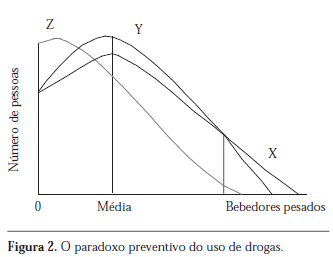The objective of this article is to: (1) evaluate the rationality and opportunity of this debate; (2) try to establish links with legal drugs; (3) evaluate the available data on the effect of legalization of a drug; and (4) propose an alternative drug police based on clear objectives to be reached; (5) describe how Sweden is dealing with the theme of drugs restriction as a social care. Methodologically the text constitutes in a summary of readings and elaborations of the author, placed to incite a discussion. It is concluded that four aspects need to be taken into consideration when a drug police of a country is analyzed, they are: (1) external factors influence the police: international agreements, health and social assistance police, individual rights, authority and autonomy of physicians and other professionals; (2) the objective established influence formal polices and its implementation; (3) the symbolic influence that excels the implementation. Influent people make declarations that strongly reach the legitimacy and adhesion to actions; (4) formal polices and their implementation receive direct influence to socially perceived damages by the drugs use, which could be independent of the real level of its use in a determined society.
Drugs and public health; Drugs and society; Drugs police


